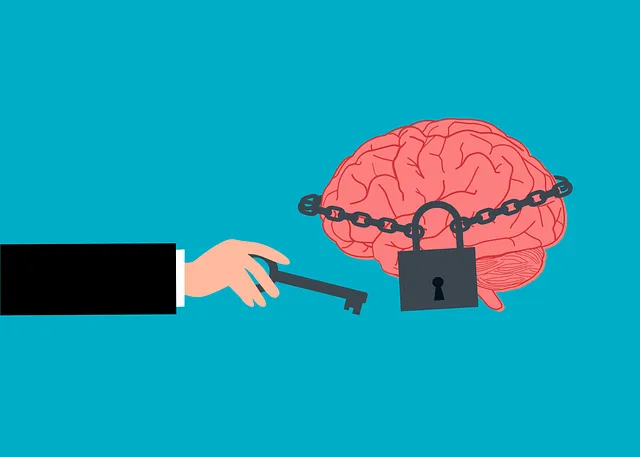Kaiser Permanente mental health locations in Littleton prioritize resilience through the RFM framework (Resilience, Flexibility, Mastery) and Mind Over Matter principles, integrating mindfulness, cognitive reframing, and skill-building workshops. These programs promote emotional well-being, empowering individuals to better navigate challenges. The successful model includes Mental Wellness Journaling Exercises and Community Outreach Program Implementation, reducing stigma and improving patient satisfaction. Continuous improvement is driven by clear goals, client feedback, and assessment strategies, ensuring tailored care for diverse populations.
“Resilience is a powerful tool in navigating life’s challenges, and RFM (Recovery, Flexibility, and Mastery) exercises have emerged as an effective method to build mental fortitude. This article explores how Kaiser Permanente Mental Health Locations in Littleton utilized RFM principles to enhance patient resilience. We delve into case studies, strategies for implementation, and measurable outcomes. By understanding the role of RFM, healthcare providers can empower individuals to cope with stress and adversity, leading to improved well-being.”
- Understanding RFM and Its Role in Resilience Building
- Kaiser Permanente Mental Health Locations Littleton: A Case Study
- Implementing Resilience Exercises: Strategies and Benefits
- Measuring Success and Continuous Improvement
Understanding RFM and Its Role in Resilience Building

Resilience is a critical component of overall well-being, and organizations like Kaiser Permanente mental health locations in Littleton recognize its importance. RFM, or Resilience, Flexibility, and Mastery, is a framework designed to help individuals build resilience by fostering a sense of control and purpose during challenging times. This approach, rooted in Mind Over Matter principles, encourages people to view stress as an opportunity for growth rather than a barrier.
By implementing exercises that focus on these RFM dimensions, mental health education programs can be designed to promote emotional well-being. These activities might include mindfulness practices, cognitive reframing techniques, and skill-building workshops that teach effective coping strategies. Through such initiatives, Kaiser Permanente aims to empower individuals to navigate life’s challenges with greater ease, ultimately enhancing their overall mental health and quality of life in Littleton and beyond.
Kaiser Permanente Mental Health Locations Littleton: A Case Study

Kaiser Permanente Mental Health Locations Littleton serves as an excellent case study for understanding how structured resilience-building exercises can transform mental health care delivery. By integrating Emotional Well-being Promotion Techniques into their routine, this network has not only enhanced patient satisfaction but also fostered a culture of emotional regulation within their facilities. This approach recognizes the importance of mental wellness journaling exercises as a powerful tool to guide individuals towards better coping mechanisms and improved overall emotional well-being.
The success at Kaiser Permanente highlights the potential for similar initiatives across various healthcare settings. By providing guidance on Emotional Regulation strategies, mental health professionals can empower patients to actively participate in their healing process. This proactive approach, centered around Mental Wellness Journaling Exercise Guidance, has shown promising results in promoting resilience and improving long-term emotional health outcomes for individuals seeking support at Kaiser Permanente mental health locations Littleton and beyond.
Implementing Resilience Exercises: Strategies and Benefits

Implementing resilience exercises is a proactive approach to enhancing mental well-being, particularly relevant for populations like those at Kaiser Permanente mental health locations Littleton. These exercises are designed to equip individuals with strategies to cope with stress and adversity, fostering a sense of empowerment and adaptability. One effective method is incorporating structured programs such as the Community Outreach Program Implementation, which focuses on building resilience through group activities and shared experiences. By creating safe spaces for participants to share their stories and learn from one another, these programs reduce the stigma associated with mental illness and encourage open conversations.
Moreover, Stress Management Workshops Organization plays a vital role in promoting resilience by teaching evidence-based techniques like mindfulness, cognitive reframing, and relaxation strategies. Regular participation in such workshops has been linked to improved emotional regulation, reduced anxiety, and enhanced overall resilience. In the context of Kaiser Permanente’s efforts, these initiatives complement their mission to provide comprehensive mental health services while addressing the root causes of mental illness through Mental Illness Stigma Reduction Efforts.
Measuring Success and Continuous Improvement

Measuring success and fostering continuous improvement are vital components of any robust resilience-building program, especially at Kaiser Permanente mental health locations Littleton. By setting clear, measurable goals and implementing regular assessment strategies, practitioners can gauge the effectiveness of their interventions. This may involve collecting participant feedback, tracking key performance indicators (KPIs), and analyzing qualitative data to identify trends and areas for enhancement.
Effective communication strategies play a crucial role in this process. Encouraging open dialogue between clients and caregivers facilitates the exchange of valuable insights. Moreover, integrating self-care routine development for better mental health into resilience exercises can enhance overall program success. Cultural sensitivity in mental healthcare practice is also essential, ensuring that interventions are inclusive and tailored to diverse populations, ultimately improving outcomes at Kaiser Permanente mental health locations Littleton.
The implementation of RFM (Resilience, Flexibility, and Mindfulness) exercises in organizations like Kaiser Permanente’s mental health locations in Littleton demonstrates a comprehensive approach to building resilience. By integrating these practices into daily routines, institutions can foster a culture of emotional well-being and adaptability among their workforce. This case study highlights the significant benefits of RFM, from enhanced stress management to improved overall mental health. Moving forward, continuous improvement through measured success will be key to ensuring these initiatives remain effective and relevant in supporting individuals’ resilience.






